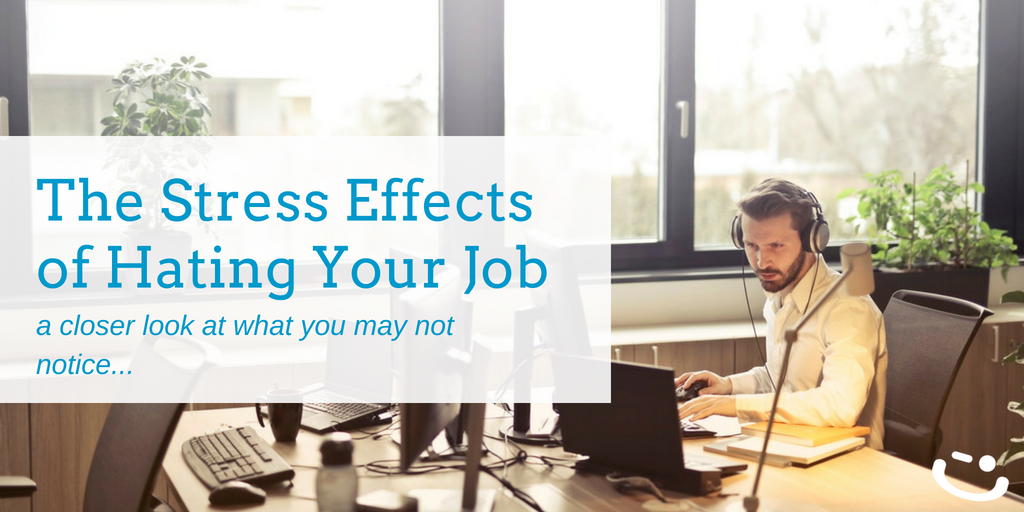 Let’s be frank, do you hate your job? Or more gently, do you experience negative feelings when you think about work?
Let’s be frank, do you hate your job? Or more gently, do you experience negative feelings when you think about work?
If you’re a manager, maybe you noticed that your team’s mood could be typically described as somber or underwhelming. Whether you are an entry-level employee or an executive, having a lack of engagement at work doesn’t decrease with pay grade.
According to Gallup, about 70% of Americans are either not engaged [i.e., not happy, not enthusiastic] at their jobs. Hating your job is stressful! It’s not an easy feat to force yourself to go to work and to do something you dislike for hours at a time.From physical health to mental wellness, your job and work environment can take a toll on you [but trust us, this can change]. Here are some effects that you may not realize could be hurting you and your organization in a lasting way:
The Burnout Epidemic
Truth be told, burnout is a stress response. The tough thing about burnout is that it can manifest differently from person to person. For instance, Ariana Huffington, the founder of ThriveGlobal, had experienced burnout through total physical collapse [although she recalls her mental state was reasonably stable at the time]. When you’re not engaged, you’re 4x more likely to develop burnout.
How can you combat burnout in the workplace? Invest and create a culture that has support systems to alleviate stress.
In an episode of NPR’s Planet Money, SpotHero describes how the company made a conscious effort to reduce turnover and stress in their call centers. Employees were fearful and anxiety-ridden at work because of the high-stress calls that would come in. They decided to make a change to the culture. From styling zen dens and bringing superhero capes in for their call center heroes, SpotHero has since experienced zero turnover and a happier, less burned out workforce.
Related: Happiness Now | 3 Tips for Reducing Workplace Burnout
Illness and Inflammation
A common culprit to workplace stress is its effect on your immune system. When your stress is more prolonged than a few short spurts (temporary stress), then the levels of the stress hormone, cortisol, cause inflammation. This inflammation can take a toll on your body and actualize through pain, soreness, headaches, skin irritation, and more.
Stress also makes you an easy target for viruses and illness because it lowers the levels of white blood cells that can help stave them off.
During high-stress periods of your life, do you recall feeling physically good or in good health? Maybe you got a cold before your wedding day or repeated a sinus infection of a few months; we can tell you that stress had something to do with it!
Actual Pain – Back Pain to be Precise
Like most people, your job requires you to sit at a computer for hours at a time. Over the years, your body may have gotten used to the effects of sitting in this extended, crouched over, shoulders-hunched position but that doesn’t mean it’s better for you. It can even increase your risk of death.
At least 54% of Americans have chronic back pain, of which 29% attribute their pain to stress. In the U.S, it's estimated that $50 billion a year is spent on back pain treatment.
So is the pain caused by sitting at your desk and navigating a stressful environment costing your health and money in the long-term? Most likely, yes.
A way to combat the risk of pain is to implement culture initiatives centered around movement and wellness so that your employees become a little less centralized at their computers. When you physically feel good, your stress levels decrease too.
Usually a widespread feeling of "hating your job" may indicate that your workplace culture needs change. Learn how Canpa transformed their culture to make a lasting and profitable impact:
